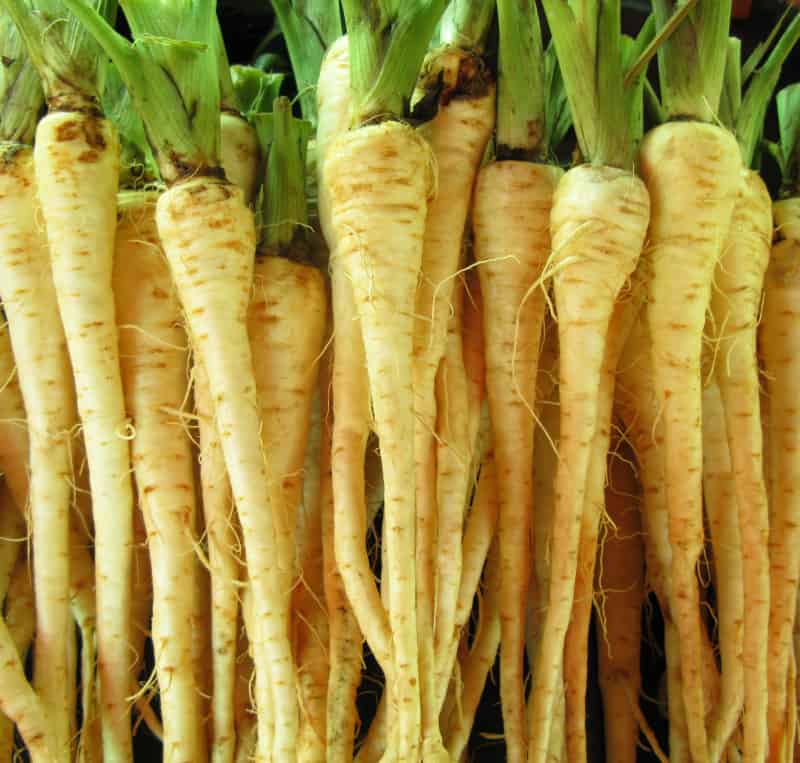
Image Source www.simplyrabbits.com
The Nutritional Value of Parsnips for Rabbits
When it comes to providing a well-balanced diet for your furry friends, it’s essential to know what foods are safe and nutritious for them. If you’re wondering whether rabbits can eat parsnips, you’ve come to the right place. In this article, we’ll delve into the nutritional value of parsnips for rabbits and help you make an informed decision about incorporating this root vegetable into your pet’s diet.
Rabbits thrive on a diet that mainly comprises hay, fresh vegetables, and a minimal amount of pellets. While parsnips may seem like a tempting treat to share with your bunnies, it’s crucial to understand their nutritional composition and any potential risks they may pose to your furry companions.
Continue reading to learn more about the nutritional benefits and considerations of feeding parsnips to rabbits.
The Benefits of Parsnips in a Rabbit’s Diet
Parsnips are a root vegetable that belongs to the same family as carrots. They are packed with essential vitamins, minerals, and dietary fiber, making them a potentially valuable addition to your rabbit’s diet when given in moderation.
One of the significant benefits of parsnips is their high fiber content. Fiber plays a crucial role in a rabbit’s digestive system, promoting good gut health and preventing issues like gastrointestinal stasis. Additionally, parsnips contain important nutrients such as vitamin C, potassium, folate, and manganese, which can contribute to your bunny’s overall well-being.
Continue reading to discover the potential risks and precautions associated with feeding your rabbits parsnips.
Potential Risks and Precautions
While parsnips can provide some nutritional benefits, it’s essential to be aware of potential risks as well. One major concern is the high sugar content present in parsnips. Rabbits have delicate digestive systems that are sensitive to foods high in sugar. If fed excessively, parsnips could lead to weight gain, digestive issues, or even dental problems.
It’s crucial to introduce parsnips slowly and in small quantities to monitor your rabbit’s response. Observe any signs of gastrointestinal distress, such as diarrhea or bloating, and adjust the portion size accordingly. Remember, while parsnips may offer nutritional value, they should never replace the staple components of your rabbit’s diet.
Keep reading for practical tips on incorporating parsnips into your rabbit’s diet and ensuring their health and happiness.
Tips for Feeding Parsnips to Your Rabbits
Now that you understand the nutritional aspects and risks associated with parsnips, it’s time to explore how to safely incorporate this root vegetable into your rabbit’s diet. By following these tips, you can offer your bunnies a varied and enjoyable eating experience:
- Introduce parsnips gradually: Start by offering a small slice and monitor your rabbit’s reaction before increasing the portion size. This helps prevent any adverse effects on their digestive system.
- Ensure fresh and high-quality parsnips: Opt for organic parsnips to avoid potential pesticide exposure. Choose firm, unblemished parsnips for optimal freshness and nutrient content.
- Wash and peel the parsnips: Thoroughly wash the parsnips to remove any dirt or impurities. Consider peeling them to eliminate any waxy residue or potential pesticide residues.
- Cut parsnips into appropriate sizes: Slice the parsnips into small, thin pieces to prevent choking hazards. This also ensures easier digestion for your rabbits.
- Offer parsnips as occasional treats: Treat parsnips as special, occasional treats rather than a regular part of your rabbit’s diet. A small slice once or twice a week is generally sufficient.
Read on to discover other safe and tasty vegetable options to enhance your rabbit’s diet.
Alternative Vegetables for Rabbits
If you’re looking to diversify your rabbit’s diet beyond parsnips, there are several safe and nutritionally-rich options to consider. Some popular vegetables that are generally well-tolerated by rabbits include:
- Carrots
- Broccoli
- Kale
- Romaine lettuce
- Bell peppers
- Parsley
Remember to introduce new vegetables gradually to avoid digestive upset, and always consult with a veterinarian if you have any concerns about your rabbit’s diet.
Conclusion
In summary, rabbits can eat parsnips in moderation, taking into account their nutritional composition and potential risks. While parsnips offer fiber and essential nutrients, they also contain higher levels of sugar that can negatively impact a rabbit’s health if consumed excessively. By following the tips provided in this article and offering parsnips as occasional treats, you can ensure a balanced and enjoyable diet for your furry friends.
Remember, a rabbit’s diet should primarily consist of hay, fresh vegetables, and a minimal amount of pellets. Prioritize your rabbit’s well-being by providing a diverse range of safe and nutritious foods while monitoring their response to new additions to their diet. By doing so, you’ll help your rabbits thrive and lead happy, healthy lives.